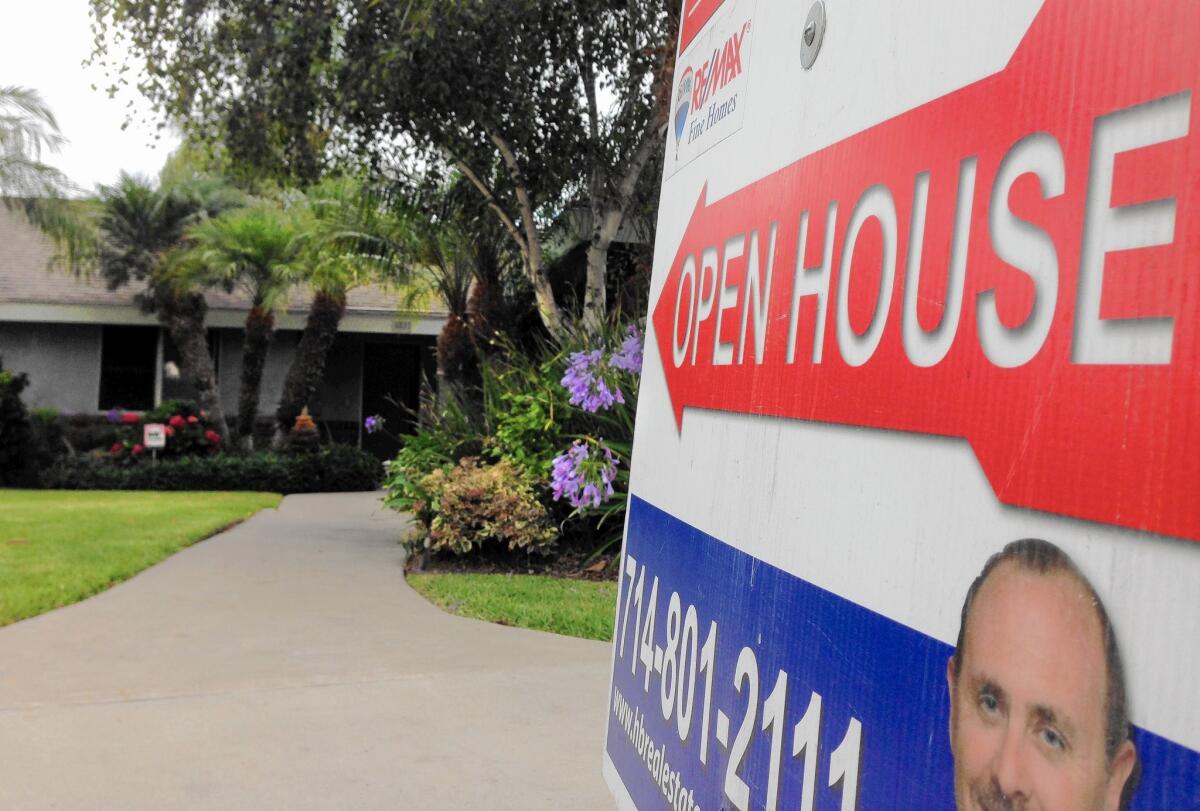Sellers who ignore VA buyers are missing out

Some home sellers don’t want to deal with would-be buyers who plan to get a loan guaranteed by the Department of Veterans Affairs. But those sellers could be shooting themselves in the foot.
At the same time, vets who fail to look into add-on programs offered by their states, and sometimes by their local governments, could be leaving money on the table.
The basic advantage of VA-guaranteed financing is that borrowers don’t have to put any money down.
In most places, vets can borrow up to $144,000 without putting up any cash of their own. But the limit is higher in some places — sometimes much higher. In Sacramento, for example, the max is $827,500, while it’s $546,250 in San Diego. And in Marin County, the limit is a whopping $1.05 million.
Of course, buyers can go above the limit. But for every $4 borrowed after that, lenders typically require a down payment of $1. So, in most markets, if you are trying to borrow $200,000, you’ll need $14,000 as a down payment. ($200,000 less $144,00 is $56,000, divided by 4 is $14,000.)
Although there’s an ample pool of former servicemen and women who easily qualify for VA financing, many sellers still believe the old wives’ tales that there’s too much paperwork or that approvals are too slow.
“Most home sellers have major misconceptions about veterans and active military, so they don’t even try to market their homes to this large population,” says Wanda Petty, president of the Washington, D.C., chapter of the Veterans Assn. of Real Estate Professionals. “As a result, they are missing out on a huge consumer market.”
What may have been true years ago just isn’t so anymore. To set the record straight, here are five perceptions of VA loans that no longer hold water:
•Slow to close. According to VAREP, VA loans close as much as two days faster than conventional mortgages. Forty-eight hours isn’t much, but it could be if you are in a hurry.
•Tough to qualify. Buyers know the loans’ parameters upfront, so there are few, if any, surprises. And if sellers know the rules too, the qualifying process will go that much smoother, Petty says.
•Out of reach. Few neighborhoods are too expensive for VA loans. See loan limits above.
•Tough to qualify. The minimum credit score required by the VA varies by lender, but the average is 525. That compares favorably with the 600 needed for most conventional loans. Yet foreclosures on VA loans are far less frequent than on conventional mortgages.
•Few buyers. There may not appear to be many military families living in your community, but they are everywhere. According to the National Assn. of Realtors, which is stepping up efforts to educate members about the VA home loan program, nearly 12% of the 16.4 million active-duty service members and military veterans with a mortgage have a VA loan.
According to Inside Mortgage Finance, a trade publication, the VA loan program is among the fastest-growing sectors in the mortgage market. At last count, the agency owned nearly 25% of the primary insured-loan market, easily outpacing the Federal Housing Administration, the government’s other main housing finance agency.
But if borrowers need a little extra help, most states and many localities offer additional benefits over and above what Uncle Sam provides.
The types of programs vary from place to place. Here’s a sampling:
•California: The California Housing Finance Agency offers a tax credit program that reduces the buyer’s federal taxes, creating extra income to use toward the monthly house payment. First-time buyers can convert up to 20% of their annual mortgage interest into a direct credit on their federal returns for as long as they own the property.
•Arizona: Compensation received by service members who are on active duty any month of the year is exempt from income taxes on those months’ income. The state also offers a property tax exemption for widows and widowers of vets, as well as disabled persons.
•Illinois: The new state Homeownership Program for Veterans and Active Service Personnel offers significantly below-market financing and counseling.
•Maryland: The Old Line State exempts disabled vets from paying property taxes. And retired service people are exempt from paying state income taxes on the first $5,000 of their retirement income.
To find out what your state offers for veterans, go to military.com and click on the Benefits tab.
Finally, don’t overlook the benefits your city or county may offer. They can be quite advantageous.
For example, Maricopa County in Arizona offers assistance with down payments to qualifying military personnel, as well as a wide range of affordable housing options. And the San Diego Housing Commission offers rehab loans to help fix existing properties.
Unfortunately, there is no central repository for local information, so you’ll have to do some digging. Start with your state’s VA department.
Distributed by Universal Uclick for United Feature Syndicate.





